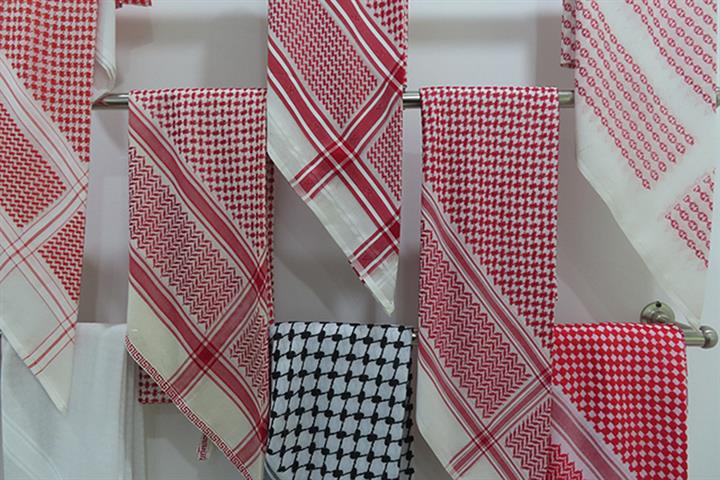 Most Keffiyehs Sold in Arab World Are Imported From Zhenze in China
Most Keffiyehs Sold in Arab World Are Imported From Zhenze in China(Yicai Global) Dec. 8 -- The majority of the keffiyehs, a traditional Arab headdress worn by men, that are sold in Arab countries are made in China, with about 70 percent of them coming from Zhenze, a town in Suzhou’s Wujiang district, according to the head of a local manufacturer.
Wujiang has 31 companies in the keffiyeh industry, most of which are based in Zhenze, said Sheng Xinjiang, chairman of Wujiang Aolinte Artware. Six are actual keffiyeh makers, while the others are in spinning, dyeing, finishing, and packaging among other fields, he added.
Keffiyehs are in big demand because the Arab states in the Persian Gulf have recovered from the Covid-19 pandemic, with a boom in buying this year, said Yang Weirong, general manager at keffiyeh maker Suzhou Yangguang Apparel.
2022 has been the best year for keffiyeh sales at Aolinte Artware, which saw sales jump over 20 percent on last year, Sheng noted.
Yangguang Apparel received an order from Qatar to make keffiyehs for the FIFA World Cup earlier this year, Yang said, adding that the firm delivered over 100,000 between August and September after half a year of production. New orders will be delivered from May next year, he said.
The keffiyeh industry was initially centered in Switzerland and the United Kingdom, and then moved to Japan and South Korea, but is mainly in China now, Sheng said.
Zhenze is an ancient town in the area south of the Yangtze River. It has a long history in the weaving industry. Companies there received the first orders for keffiyehs in the late 1980s. The quality of keffiyehs made there was better than that of those made abroad, so in the early 1990s, the industry rapidly shifted to China, also thanks to the country’s competitive labor costs.
“Some of the keffiyehs labeled as made abroad usually use semi-finished products from China, Sheng added.
A special weaving technique is needed to make keffiyehs. As China did not have machines specifically designed to produce them, firms in Zhenze redesigned and adapted others, and registered a number of related patents.
Ajlan & Brothers, a well-known Saudi apparel maker, came to Zhenze in 2001 to join hands with local companies and produce keffiyehs and other traditional apparel.
But Zhenze’s ability to produce them is diminishing because of the difficulty in finding new workers, Yang pointed out.
Editors: Shi Yi, Futura Costaglione